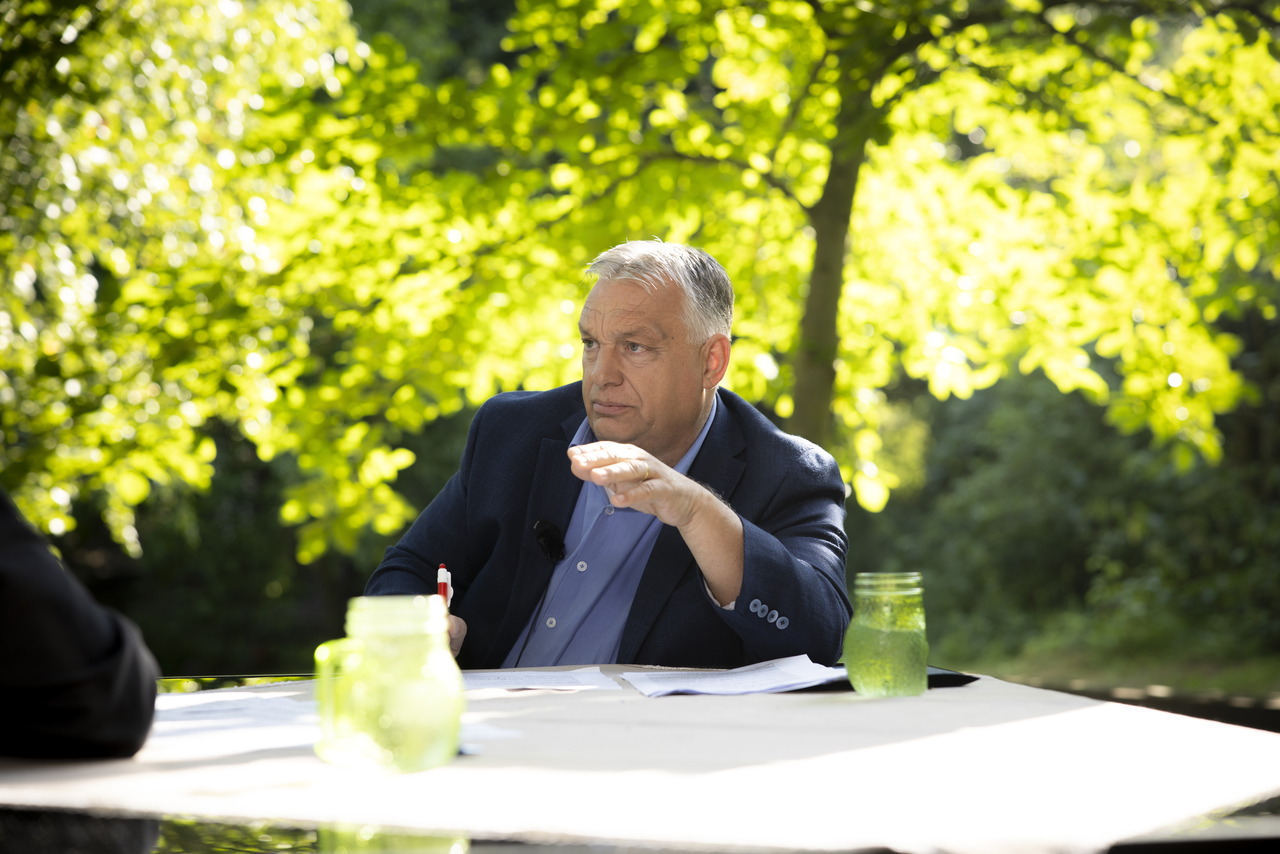Critics: Orbán’s Tusványos speech full of omissions, distortions, errors – Substance missing behind digital push

Hungarian Prime Minister Viktor Orbán delivered his much-anticipated annual speech at Tusványos on Saturday, addressing a wide array of recurring topics and unveiling his latest initiative, the “Digitális Polgári Körök” (Digital Civic Circles).
Focus on old themes: War, gender, migration
True to form, Orbán centred his address on themes he’s emphasised in recent years: war, gender issues, and migration. Political analyst Lakner Zoltán observed that these topics signal the PM’s focus on uncertain voters: those who remain unconvinced about re-electing Fidesz. In his speech, Orbán reiterated his view that Western societies are weakened by policies such as marriage equality, drawing a direct link between social liberalism and vulnerability to migration from outside Europe.
According to Lakner, Orbán attempted to link migration, gender, and LGBTQ issues in a way that, in the analyst’s view, oversimplifies and misrepresents the complexities within Western societies.
Lakner criticised the speech for what he called “omissions, distortions, and historical inaccuracies”. He argued that the PM’s rhetoric seemed tailored for a government politician gearing up for the 2026 elections, aiming to reassure supporters that, despite political opposition, Fidesz will prevail and there is no need for concern. The party’s election strategy, according to Lakner, appears to bank on a late-year economic upswing and mood-improving government measures to restore popular support.
Launch of Digital Civic Circles
The main announcement in Orbán’s address was the creation of the Digital Civic Circles, described as a grassroots, bottom-up movement. However, Lakner described this as an attempt to revive the “Harcosok Klubja” (Fighters’ Club) concept with a digital twist and suggested Orbán showed little understanding of the digital world.
Political analyst Török Gábor similarly noted that the PM identifies only technical and digital-methodological challenges facing his government, rejecting any need for substantive or strategic changes. As such, Orbán’s solutions remain within the digital domain, evident in the new Digital Civic Circles initiative.
The first circle has reportedly been established by Orbán himself with the participation of government-aligned figures such as Mária Schmidt and Rákay Philip. Török underscored that, contrary to some expectations, the PM did not make any major announcements or propose early elections, instead sticking to established narratives and a familiar playbook.
Ongoing contest of narratives
While the Prime Minister spoke at Tusványos, Péter Magyar, president of the Tisza Party, held a contrasting event in Székesfehérvár. As Telex writes, according to Lakner, Magyar’s speech connected global problems with everyday Hungarian issues: a contrast to Orbán, who avoided topics like the economy or inflation. Magyar struck a pro-Western, anti-Putin tone and referenced figures and milestones rarely invoked by other Hungarian politicians, further setting himself apart from Orbán’s worldview.
Conclusion
The Hungarian PM’s 2025 Tusványos speech offered continuity over change, foregrounding familiar political themes and revealing a new, digitally focused movement as a sign of tactical rather than strategic innovation. While the Prime Minister seeks to mobilise his base ahead of the 2026 elections, both analysts and opposition voices point to growing contests not just over policy, but over the national narrative itself.
Read more Orbán-related news on Daily News Hungary.
Read also:







